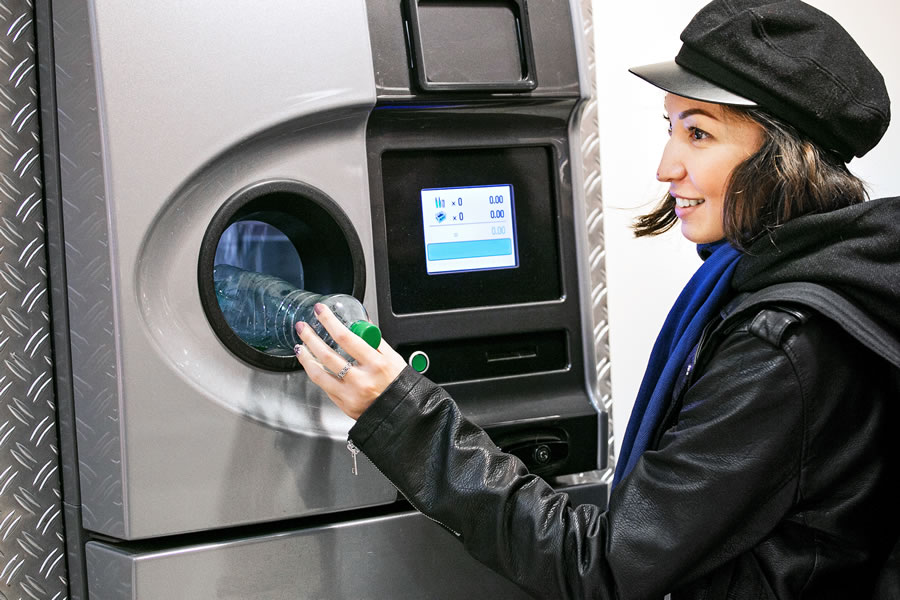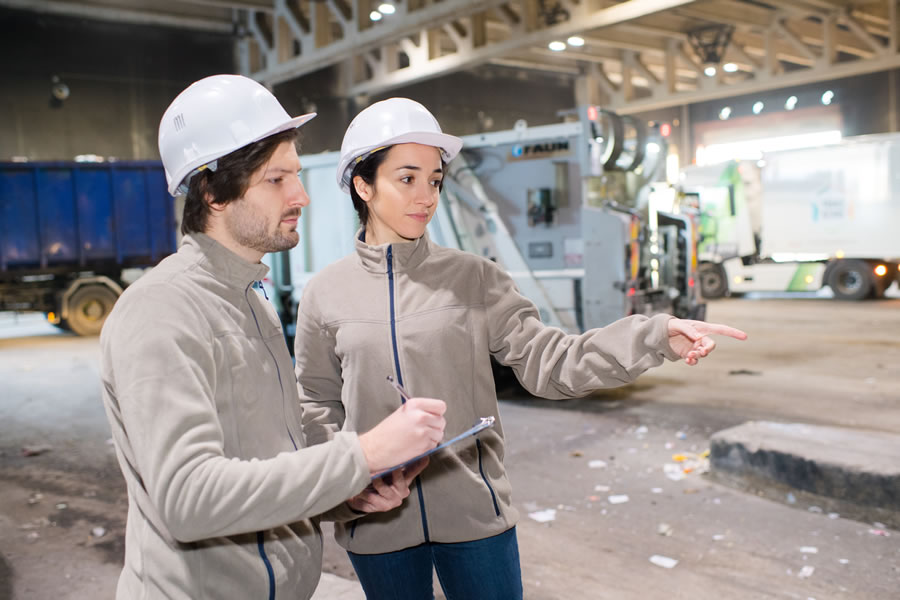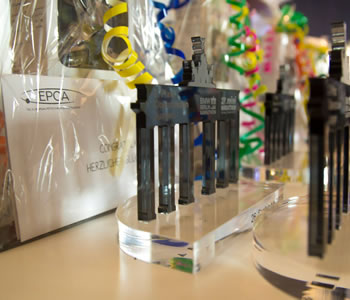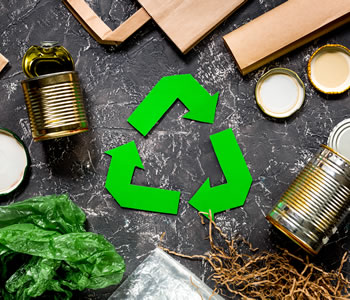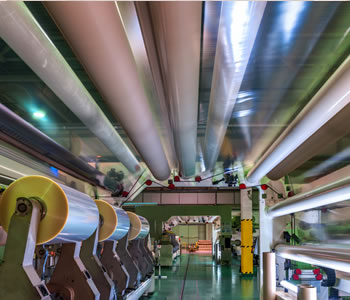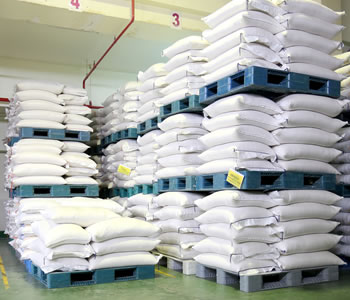The Year of Ecology in Russia has been dedicated to waste disposal control. This issue has been spotlighted in the ‘green’ agenda of the government. A major event was the introduction of greater environmental responsibility principles for manufacturers and importers announced earlier. This includes plastic products and various types of polymer packaging. Other initiatives have been discussed, too.
The plastic bag charge
In Russia many retailers now actively participate in green projects and organise plastic, paper, glass, and battery recycling events.
The idea to introduce a ‘green’ charge on PET supermarket bags has become one of the most remarkable news stories over the last few months. Sergey Ivanov, Special Presidential Representative for Environmental Protection, Ecology and Transport, said that this initiative may affect end prices on bags, which would cause their consumption to drop. As a result, similar bags made out of other materials (in particular, paper) would be used more widely. “The Ministry of Industry and Trade should consider this idea, not necessarily this year, but we would like to see their suggestions,” said Mr Ivanov.
“The idea of such a charge is not completely new, since options have been discussed at the regional level for about five years now,” noted Andrey Karpov, Chairman of the Board of the Russian Retail Market Experts Association. However, this initiative sparks disputes. Earlier, before the 2008–2009 economic downturn, almost all Russian supermarkets used to offer plastic bags to their customers free of charge. Later, most retail networks abandoned this practice for cost reasons (except for the premium segment), which in itself decreased the volumes of plastic bags in use. Besides that, all major retail networks offered their customers freedom of choice and started selling paper bags and re-usable bags. “This is why both options, ban on PET bags and the introduction of a new charge for their use, have to be properly assessed against the financial burden to customers, especially in the current low demand environment,” commented an expert fr om Lenta, Russian food retailer.
Some food stores in Europe have reversed vending machines for plastic bottles.
According to experts “legal optimisation” of the decisions made is required to factor in the newly acquired experience. Currently, one product (e.g., glass jars or even PET bags) may be considered both a product in its own right and packaging.
Andrey Karpov reminded that paper has disadvantages for the environment, too. “If we put our stake on using paper bags, we should consider that their rapid degrading properties are balanced with the need to cut down trees in order to produce them,” he said. So, the best option would not be using any specific type of bags that end up in a landfill anyway, but rather launching “a decent system for separate waste collection and recycling into new items.” “That may help significantly with the waste management issue,” concluded Andrey Karpov.
Retail networks and their customers can do quite a lot here, but introducing new charges is not the right measure. For instance, some food stores in Europe have reverse vending machines for plastic bottles. Customers get receipts with the value of containers they return. They can use it at checkout, as a coupon that gives a discount for the same value. For Russia that is unusual, though many retailers now actively participate in green projects and organise plastic, paper, glass, and battery recycling events. “Retail chains are by their nature closer to customers. So, it is easiest for them to arrange separate waste collection in a way that would be most convenient for people,” said Anna Strezhneva, Senior Associate at PwC Legal. Supporting this kind of initiatives can be more efficient than new charges.
LyubovMelanevskaya, Executive Director of Production for the Environment Association (RusPEC) said, that plastic bags as well as other types of packaging, metal, glass, etc., are already subject to environmental charges. “They are on the list of items in Government Order No. 1886,” she said.
There is a large-scale green reform underway in Russia. New requirements have been introduced for disposal of certain amounts of packaging and products that have lost their consumer properties. The document mentioned by LyubovMelanevskaya defines the list of items the requirements apply to. Another document – Government Order No. 2491 – defines the requirements for the volume of goods to be recycled (as % of production output or imports). To comply, companies are supposed to use their own waste disposal solutions (engaging contractors is an option) or to pay environmental charges to the government. The proceeds are meant to be used to develop waste management infrastructure.
Lessons learnt
In 2017, the charge was actually collected for the first time – previously zero rates were in effect. Many experts consider the results controversial. On the one hand, the country has taken a big step towards greater environmental responsibility of businesses. On the other, the rules and regulations are still disputable. Suffice to say that the declaration campaign at the beginning of the year failed – producers could not properly interpret the regulations. As a result, businesses had to face numerous audits by the regulatory bodies and the government failed to collect the target amounts.
In 2017 businesses most often faced difficulties identifying parties subject to the environmental charges in their long production chains.
According to experts “legal optimisation” of the decisions made is required to factor in the newly acquired experience. Currently, one product (e.g., glass jars or even PET bags) may be considered both a product in its own right and packaging. This leads to controversial interpretations by businesses and regulatory bodies. To avoid this, separating products and packaging on the list of “items subject to disposal” would be reasonable.
And this is not the only issue. “The effective regulations may lead to situations wh ere both raw material to make a product and the product itself are both on the list. In that case, environmental charges are payable twice, which is unacceptable,” said Anna Strezhneva. According to all experts we have consulted, “legal optimisation” is already underway. The regulations containing the upd ated lists are expected to come into force in early 2018, so that companies can prepare their 2017 declarations on time.
Experts also advise to prepare for the following new developments:
• introduction of regional requirements for waste management that would define volumes of waste subject to recycling over a reporting period;
• responsibility for separate waste collection using regional efficiency multiples by types of waste;
• implementation of utility tariff incentives for individuals who comply with separate waste collection requirements;
• overhaul of territorial schemes of regional waste management – they must specify the whole path that waste would move along, from collection points to recycling facilities. These maps are designed for each Russian region and will be illustrative of its industrial infrastructure development;
• In addition to separating products and packaging on the list of items subject to environmental charges, regulations would have to introduce the interchangeability principle for items that are similar in terms of their recycling methods (e.g., PET packaging and high density polyethylene packaging
• Amendments related to reports and declarations, specifically, elimination of terminological inconsistency in the documents complicating calculation of charges.
Business is always cautious of new fiscal developments. For the environmental charge to succeed, the government's awareness campaign will be vital. According to Anna Strezhneva, in 2017 businesses most often faced difficulties identifying parties subject to the environmental charges in their long production chains. When companies resolved those issues, they did not have to pay the charge twice. Alternatives to extended responsibility of producers were also considered. Companies were particularly interested in cooperation with waste management operators – especially in documentation requirements imposed by Rosprirodnadzor (Russian environmental watchdog).
Companies are particularly interested in cooperation with waste management operators.
The government intends to eventually tighten waste management requirements, but that is going to happen no sooner than 2019–2020.
“From our experience, companies tend to compare environmental charge rates to the cost of implementing their own extended responsibility framework. In the near-term, we could expect many of them to take the latter path and cooperate with waste management operators,” said Anna Strezhneva.
The government intends to eventually tighten waste management requirements, but that is going to happen no sooner than 2019–2020. “Gradually streamlining standards is essential to recycle as much as possible, but this has to go hand in hand with the development of instruments helping to meet such extended responsibility. Namely, infrastructure improvements, introduction of an effective separate waste collection system, and tweaks to rules and regulations. It is important to strike a balance between volumes se t out in standards and environmental charge rates, so that producers have the incentive to develop their own waste management frameworks,” said Lyubov Melanevskaya.
Download PDF

